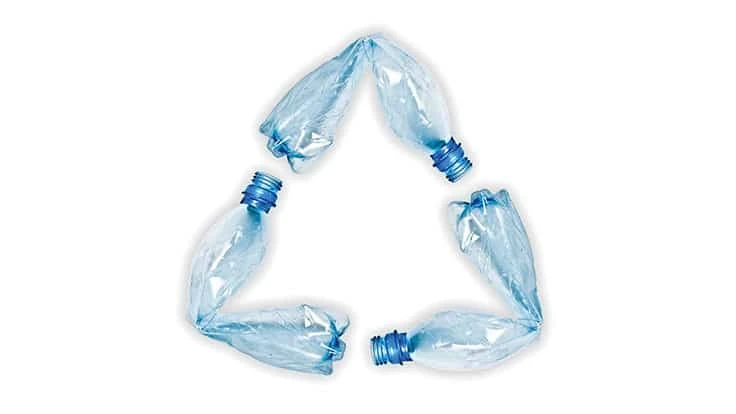
Image provided by Dreamstime.
The recyclability labeling bill signed into law in early October contains numerous aspects, but a national law firm is warning companies not to overlook one involving the long-established “chasing arrows” symbols stamped onto plastic bottles, trays and items of all kinds.
In an alert posted to its website Nov. 11, Arent Fox, which has five offices in the United States, says new standards to use those arrows codified in California by SB 343 are “stricter than the standard established by the U.S. Federal Trade Commission (FTC) in its Green Guides.”
The FTC is relatively lax in permitting users of the chasing arrows to label a product or material as recyclable even if “recycling facilities are available only to a few consumers,” writes Arent Fox.
But in California, starting Jan. 1, 2024, a much more detailed and goal-oriented set of guidelines will come into effect. According to the law firm, “a product or packaging will be considered recyclable in the state only if it meets the following requirements:
- the material is collected for recycling by programs for jurisdictions that collectively encompass at least 60 percent of the population of the state;
- the material is of a type and form that routinely becomes feedstock used in the production of new products or packaging, meaning it is sorted into defined streams for recycling processes by large volume transfer or processing facilities and sent to and reclaimed at reclaiming facilities;
- the material does not contain components, inks, adhesives or labels that prevent the item from being recycled; and
- the material does not contain certain intentionally added chemicals or per- and polyfluoroalkyl substances (PFAS).”
Some environmental advocacy groups are hailing the Golden State’s crackdown, having long expressed frustration with the appearance of the logo on types of packaging and products that are seldom recycled.
When SB 343 was passed by California’s legislature in September, however, several trade organizations expressed opposition, including the Washington-based Institute of Scrap Recycling Industries and (ISRI), which said in part “the bill’s definition—and thus its criteria—for considering materials as ‘recyclable’ completely misses the mark.”
As of now, however, the new standards are set to take effect at the start of 2024. Writes Arent Fox in its alert, “The California law appears to significantly limit the use of the recycling symbol and recycling claims on products or materials that cannot be recycled through curbside municipal recycling programs in at least 60 percent of the state. Advertisers wishing to advertise as recyclable an item that cannot be collected curbside will need to have a very effective non-curbside recycling program in place” if they wish to retain their arrows.
Latest from Recycling Today
- Ferrous price hikes may be poised to pause
- BIR prepares for Spanish exhibition
- Copper exempted from latest round of tariffs
- Interchange Recycling's EPR stewardship plan approved in Yukon
- Making the case for polycoated paper recovery
- Novolex, Pactiv Evergreen finalize merger
- In memoriam: Danny Rifkin
- BIR adds to communications team





